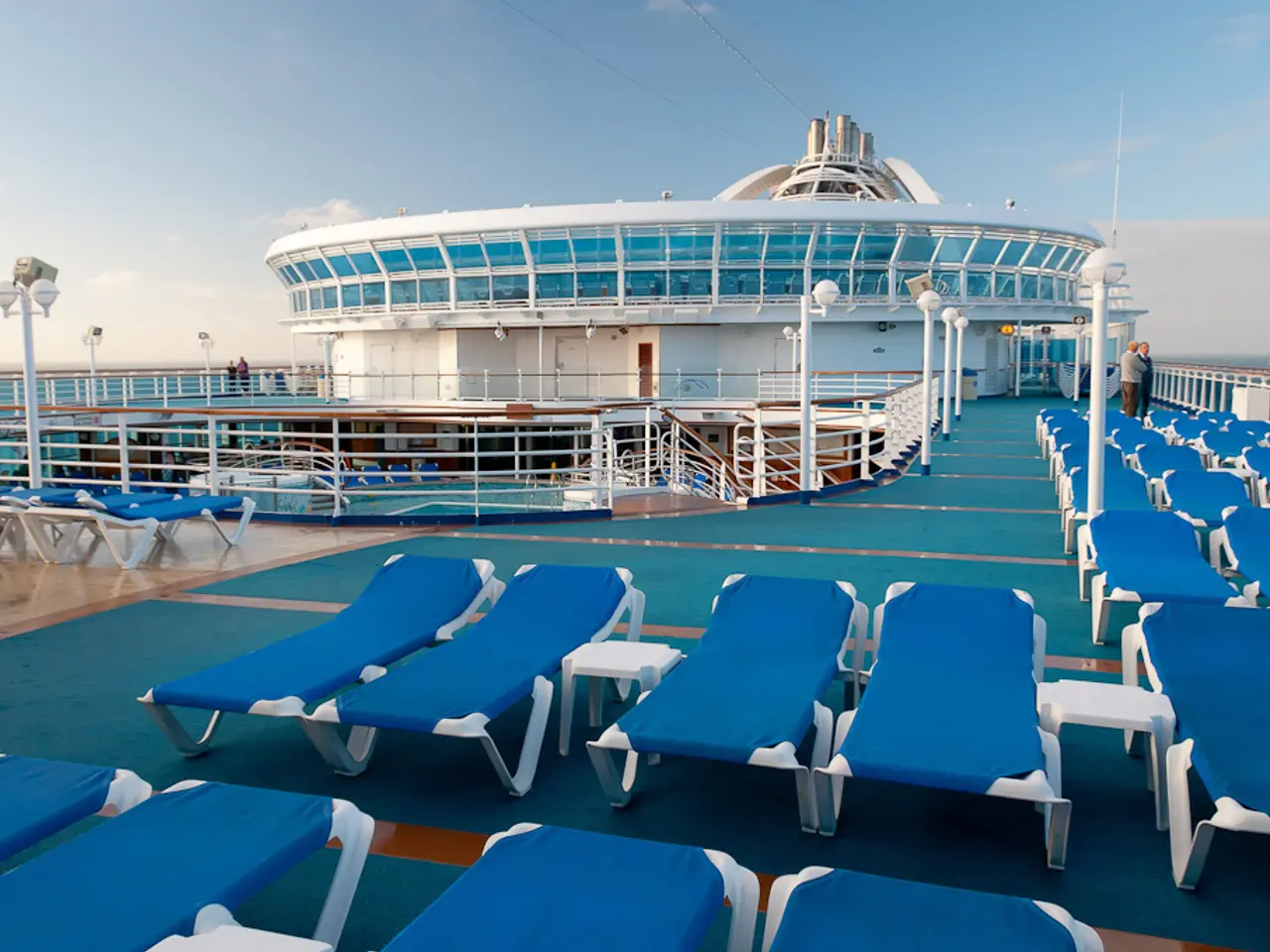Comparing Ferry and Eurotunnel Travel: Essential Insights Before Your Reservation
Crossing the Channel: Eurotunnel vs Ferry
When planning a trip to Europe from the UK, one of the first decisions you'll need to make is how to cross the English Channel. Two popular options are the Eurotunnel and ferry services. Here's a breakdown of each method to help you choose the best option for your journey.
The Eurotunnel, also known as Le Shuttle or the Chunnel, is a train that carries vehicles under the English Channel from Folkestone to Calais. This option provides a much quicker crossing, taking about 35 minutes, compared to the roughly 90-minute ferry crossing from Dover to Calais. The Eurotunnel's process for loading and unloading vehicles is efficient, allowing you to be in France within about an hour of arrival at Folkestone.
On the other hand, the ferry offers a more budget-friendly option, especially if booked well in advance or at off-peak times. Ferry crossings provide more flexibility in crossing times and the chance to enjoy onboard amenities like meals, drinks, or a break from driving. The Dover-Calais ferry route is the quickest ferry option, taking about 90 minutes, while longer ferry services exist from Portsmouth to Caen or Cherbourg, including overnight options for arriving rested.
| Option | Pros | Cons | |--------------|---------------------------------------------------------------------------------------|--------------------------------------------------------------------------------------------| | Eurotunnel | - Fastest crossing (~35 min)- Efficient vehicle loading/unloading- Quick overall journey time- Good for motorhomes, caravans, bikes | - Usually more expensive- Need to book in advance for best price- Arrival time required 1 hour before departure | | Ferry (Dover-Calais) | - Usually cheaper- More schedules available- Onboard facilities for comfort- Good option if flexible on crossing time | - Longer crossing (~90 min)- Loading/unloading can be slow- Journey time affected by weather conditions | | Ferry (Portsmouth to Caen/Cherbourg) | - Overnight option helps rest- Can be cost-effective for travelers outside southeast England | - Longer crossing times- More expensive- Less frequent sailings |
For motorhomes, campervans, and caravans, Eurotunnel is often favored for speed, while ferries provide more travel comfort and a break from driving. Bikes and cars travel well by either method, but cost and time considerations are key deciding factors.
It's worth noting that the Eurotunnel allows a maximum of 5 dogs to travel with you, unlike some ferries or pet-friendly ferry cabins. However, the Eurotunnel does not allow vehicles with LPG as a propulsion system.
When using the Eurotunnel, you and your pets stay in the vehicle together during the journey. This can make the process easier with a dog, offering more opportunities for exercise before boarding. Onboard ferries, there is a small area for dogs to do their 'business', but no space for them to run or play.
Day crossings on the ferry are cheaper than overnight, while night crossings on the Eurotunnel are cheaper. If you need to change your return journey after travel, booking two singles instead of a return ferry trip can save fees.
When traveling to a destination in Europe west of Calais, the ferry is preferred, especially from Portsmouth. However, going via Calais can be a long way round if you don't live nearby.
In summary, if speed and efficiency matter most, choose the Eurotunnel; if budget and onboard comfort with flexible timing are priorities, a ferry crossing is preferable. Additionally, there are several articles available that may be useful for motorhome travel in Europe, such as essential motorhome accessories, motorhoming in France, left-hand drive or right-hand drive, and essential paperwork to carry in Europe.
- If you're traveling with a motorhome, campervan, or caravan and prefer a faster journey, consider the Eurotunnel, as it's often preferred due to its speed.
- For travelers who want to save on expenses and enjoy onboard amenities while crossing the Channel, the ferry service offers more budget-friendly options, particularly for those who don't mind a longer crossing time.
- When planning your travel lifestyle, taking time to compare the costs and features of various transportation options, such as the Eurotunnel and ferry services, can help make your journey smoother and more enjoyable – whether that means traveling in a car, motorhome, or on a bike.




